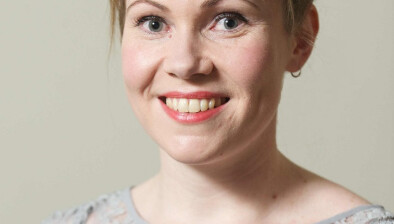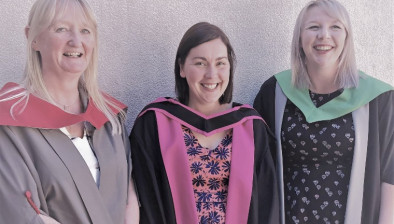Dundee homeless see benefits of getting outdoors for mental health and substance use
Steve Smith, handyman and gardener at The Salvation Army’s Strathmore Lodge, Dundee.
Research by a Scottish University and The Salvation Army has identified potential short and long-term benefits of accessing the outdoors for people experiencing mental health issues or a history of substance use.
With high levels of drug and alcohol use in Scotland, a crisis of confidence in traditional mental health services and long waiting times for psychological therapies, new research shows that time spent in many different types of greenspace could be a way to address this rising demand for services while providing cost-effective support.
The research from The Salvation Army Centre for Addiction Services and Research (SACASR) is led by Dr Wendy Masterton, Lecturer in Criminology at the University of Stirling.
Over the past two years Dr Masterton and her colleagues have established potential improvements to health and wellbeing through involvement in organised activities as diverse as walking, conservation, wild camping, landscaping, tending flowers and cultivating vegetables, among many other nature-based activities. According to Dr Masterton, even short periods spent outdoors appear to be beneficial. This is supported by an ever growing, international evidence base.
Dr Masterton said: “Most of us are probably aware of the benefits in spending more time outdoors and in taking advantage of better weather and lighter evenings to re-connect with nature. What our research shows is why this is so beneficial, and specifically for people going through tough times due to mental health issues and/or substance use.
“We have interviewed people taking part in greenspace programmes, their support staff and wider health professionals and policymakers across Scotland to look at how these activities can benefit extremely vulnerable clients. Time in greenspace could be spent in places as diverse as parks, forests, woodland, wilderness allotments, even farms. Participants benefit from feelings of escape from day-to-day stressful situations, having space to reflect, improved physical activity, learning new skills, meeting others and reduced feelings of isolation through conversation, plus a renewed sense of purpose.”
The research carried out by Dr Masterton and the wider team underpins development of a guidance manual aimed at helping organisations design and implement new greenspace programmes which could easily run alongside other forms of traditional treatment and support for conditions such as anxiety or substance use.
The Salvation Army’s Strathmore Lodge in Dundee provides emergency accommodation and specialist support. Its gardens and outdoor space began with a simple objective of tidying up the outdoor area and quickly grew from there.
Andy has enjoyed working in the outdoor space since moving into Strathmore Lodge and hopes to move on soon to a Housing First tenancy. He said: “I’ve worked with companies landscape gardening in the past. Recently we were pulling out all the weeds and tidying up this week. It’s just so peaceful, I would actually come back down here to help when I move on, I enjoy it and you’re helping other people.”
Lee Ball, The Salvation Army’s director of addictions, added: “Substance use as a way of coping is not a lifestyle choice, it is often the only option open for some people dealing with underlying toxic stress and trauma. With long waiting times for access to mainstream mental health services this research shows that access to greenspace, alongside other forms of trauma-informed support, can have a meaningful and valuable role in recovery. By creating spaces that encourage a sense of connection with nature, these spaces help us to emotionally regulate, calm our nervous system which in turn supports reparation and healing, helping people connect to nature helps improve wellbeing.”
Steve Smith from Dundee has worked for The Salvation Army for 30 years, for the past two at Strathmore Lodge in maintenance. He is one of the people behind creating and maintaining the centre’s outdoor space.
He said: “Residents always say they are happy to be in the garden, a place we can hold events, we have a firepit and sometimes a have a barbeque.
“People have maybe grown up in multi-storey flats with inhospitable communal areas – we want to bring a little bit of countryside to the city centre and it’s important that it involves the residents, they’re always happy to be in this garden, they’re happy that this environment is available.”
Morag McGratten, service manager at Strathmore Lodge, said: “We’re fortunate to have the space and the support of enthusiastic staff and volunteers to help our service users learn about gardening and enjoy a wonderful outdoor space.
“Many of the people who use our services have experienced significant trauma. Spending time outdoors can help to ground and calm them.
“Some residents could sit through all kinds of group sessions and experience nowhere near the sort of engagement we experience when working or socialising outdoors in the garden.”
Further research into the effectiveness of greenspace in supporting people with poor mental health and problem substance use is ongoing.








